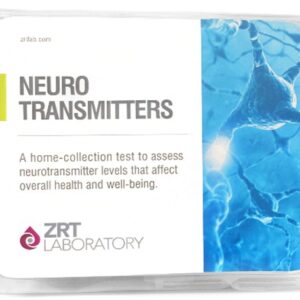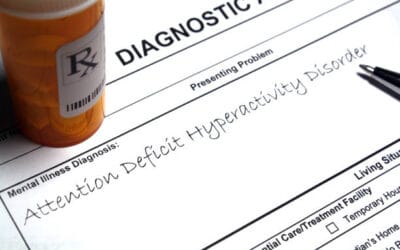Serotonin, Your Feel Good Drug, Naturally
By Koby Taylor, PharmD
Serotonin
I talk with a lot of patients who come through my pharmacy asking questions about their prescriptions and seeking advice about nutrition, amino acids, and hormone balancing. Given that we are in our winter months, I thought an article about a subject that is common this time of year would be appropriate. So, let’s talk about depression and serotonin. What is serotonin? Serotonin is a neurotransmitter that acts as a hormone and is naturally produced in the brain stem and your intestinal mucosa. In medical terminology, you may know it as 5-hydroxytryptamine. You may have also come across the phrase “the feel good drug” in reference to serotonin. Why is serotonin important? Serotonin is important for a multitude of reasons. It helps in governing your mood, memory, behavior, gastrointestinal balance, digestion, sleep, bone health, blood clotting, and sexual function, among other things.
Treating Depression with Serotonin (SSRI) Medications
Interestingly, you or someone you know may have taken a SSRI antidepressant medication for chronic pain. Typically, this course of treatment may be temporary. Someone in chronic pain may not be producing enough serotonin, so blocking the body’s reabsorption process may help promote healing and overall well-being by allowing the patient to sleep better, digest food better, and stay positive.
Can you be tested for neurotransmitters? The short answer is yes. At my pharmacy, we offer a comprehensive test through ZRT Laboratory. Being tested is a simple process and does not require an office visit to complete. You will take the kit home and follow the instructions; it’s that easy. I encourage you to Google this test and be sure to look at all the components the test includes. It could furnish you and your healthcare provider with extra beneficial information.
Investigating the Serotonin Map/Pathway
Our bodies are complex! Within that complexity, we have to consider that more than one element travels along the same pathway and that everything works together to create and maintain what we call homeostasis, a harmonious balance.
When we rely too heavily on a particular medication or supplement, we can disrupt this natural harmonious balance, and in a sense, block a pathway. For example, dopamine, another important neurotransmitter, interacts with serotonin receptors. This interaction is very important for maintaining a balance between the two neurotransmitters and ensuring balanced cognitive function. However, if a drug or supplement solely targets serotonin receptors without considering the interaction with dopamine, it may lead to an imbalance and potentially have negative effects on cognition and mood.
Increasing Your Own Well-Being
 For those of you who may be taking antidepressants and for those who aren’t but may be feeling the “blues,” let’s talk about food! Protein is an essential macronutrient that plays a crucial role in various physiological processes in the body. One of its important functions is the synthesis of neurotransmitters, including serotonin and dopamine. The link between protein and serotonin lies in the amino acid tryptophan. Tryptophan is an “essential amino acid,” which means it cannot be produced by the body and must be made through dietary sources. It is a precursor to serotonin, converted into serotonin in the brain.
For those of you who may be taking antidepressants and for those who aren’t but may be feeling the “blues,” let’s talk about food! Protein is an essential macronutrient that plays a crucial role in various physiological processes in the body. One of its important functions is the synthesis of neurotransmitters, including serotonin and dopamine. The link between protein and serotonin lies in the amino acid tryptophan. Tryptophan is an “essential amino acid,” which means it cannot be produced by the body and must be made through dietary sources. It is a precursor to serotonin, converted into serotonin in the brain.
Whole food, plant-based diets can provide an abundant source of protein while also promoting serotonin production. Plant-based protein sources, such as legumes, tofu, tempeh, quinoa, and nuts, are not only rich in protein but also contain tryptophan. By consuming these plant-based protein sources, individuals can ensure an adequate intake of tryptophan that can then be converted into serotonin. Foods high in B vitamins, such as leafy greens, whole grains, and legumes, are important for the synthesis of serotonin. Additionally, plant-based diets are often high in antioxidants, which can protect the brain from oxidative stress and promote optimal serotonin function.
Here are examples of foods that help support and boost serotonin production in the body naturally:
RELATED ARTICLES
Most Popular ADHD Medication Alternatives
By Koby Taylor, PharmD ADHD, or attention-deficit hyperactivity disorder, is a common mental...
A 90 Day Trial & Children Developmental Disorders – Case Study
Case Study: Fusion Pharmacy, Santa Clara, Utah Author: Koby Taylor, PharmD Amino acids are...
RELATED PRODUCTS
Click any product below for details and to visit our online store.
-

L-Tryptophan 500mg
$52.98 -

L-Glutamine
$26.98 -

GABA Calm
$39.98 -

5-HTP 100mg
$23.98 -

Crave Control
$59.98 -

ZRT Blood Spot Hormone Test Kit
Price range: $130.00 through $349.00 -

SpectraCell Laboratories Micronutrient Test
$440.00 -

ZRT Neurotransmitters Test
$272.00 -

ZRT Fertility Profile
$400.00 -

Microbiome Labs BiomeFx
$399.00




